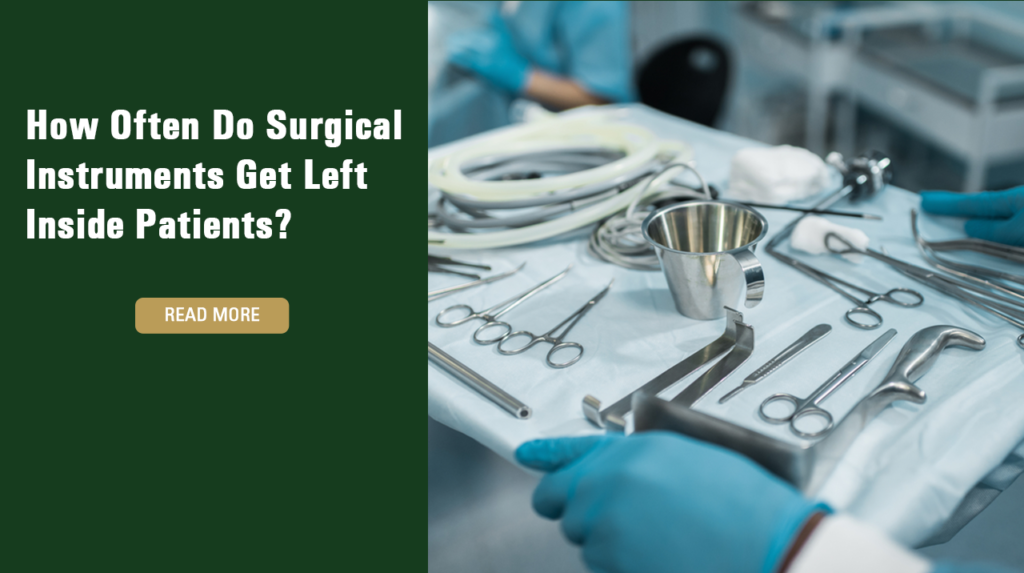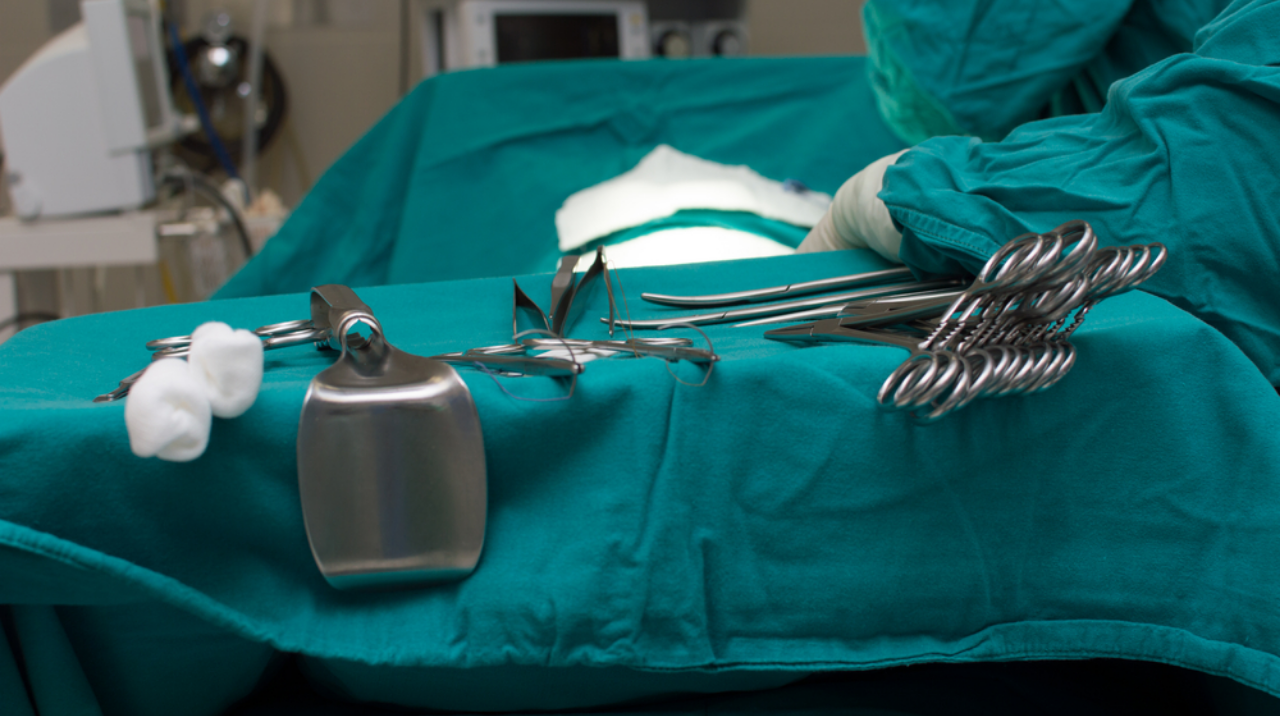How Often Do Surgical Instruments Get Left Inside Patients?

Things can sometimes go wrong when people undergo surgery. While surgeries carry risks, and a good outcome cannot be guaranteed, some surgical errors amount to medical negligence. When a surgeon is negligent, you might be seriously injured and have a much longer road to recovery. A common type of surgical negligence that sometimes occurs involves doctors leaving surgical instruments behind in their patients following surgical procedures. When the surgical team leaves a medical instrument behind, the patient might have to undergo additional surgeries to remove it, might develop a potentially life-threatening infection, and face a longer recovery process.
What Are Retained Surgical Bodies?
Retained surgical bodies or instruments include any foreign object that might be left behind in patients following surgeries.
Some of the common types of foreign objects that are left behind in patients after the surgical procedure include the following:
- Sponges
- Gloves
- Surgical masks
- Scalpels
- Forceps
- Clamps
- Scopes
- Gloves
- Needles
- Drain tips
- Scissors
How Frequently Are Things Left Behind in Surgery?
The National Center For Biotechnology Information (NCBI) reports that an estimated 1,500 incidents involving retained surgical bodies occur each year in the U.S. out of 28 million annual surgical procedures. The NCBI estimates that the rate of retained surgical bodies ranges from 03. to 1.0 per 1,000 abdominal surgeries. The most common areas in which surgical instruments are left behind include the abdomen, pelvis, and retroperitoneum.
If a member of your surgical team left a foreign object inside of your body, you should speak to an experienced medical malpractice attorney at Raynes & Lawn. We can review what happened in your case and consult with medical experts to determine whether the surgeon failed to meet the expected standard of care and caused your injuries and losses.
Why Are Surgical Instruments Left In Patients?
Surgeons commonly use a broad variety of different instruments during procedures. In a complex surgery, a surgeon might use more than 250 different instruments during one operation. If the surgical technician and surgeon do not keep careful track of the tools that are used, they can easily be forgotten inside of patients. Some types of instruments such as sponges are particularly easy to lose. They are used during surgery to soak up blood and can blend in visually with the patient’s internal tissues once they are used.
A lack of organization and communication problems among the surgical team during surgery can contribute to retained surgical instruments. Instruments can be left behind because of human error, inexperience with emergencies, improper management, and fatigue. Other risk factors for retained surgical instruments include performing multiple surgeries, performing procedures that require the involvement of multiple surgical teams, surgeries that cause significant blood loss, and surgeries performed on patients who are obese.
A medical malpractice attorney will work with a medical expert to determine why a retained surgical instrument was left behind after your surgery. If the expert and your attorney believe that the surgeon’s treatment failed to meet the expected standard of care and caused your injuries and harm, you might have a viable medical malpractice claim.
Complications Caused By Retained Surgical Instruments
Complications arising from retained surgical instruments greatly depend on the particular type of instrument that was left behind. In some cases, patients might not realize they have foreign bodies inside of their bodies for months or years.
In others, however, patients might experience the following complications:
- Organ damage or perforations
- Swelling
- Fever
- Infections
- Obstructions
- Severe pain
- Digestive issues
- Death
You might have to undergo subsequent surgeries to remove the object and fix the surgeon’s mistake. This can cause you to experience additional medical expenses and a long road to recovery.

Surgical teams must do everything they can to keep careful track of the surgical instruments used during surgery so that nothing will be left behind inside of their patients. They could use tracking technology with scans and bar codes to track each sponge when it is used. Radiofrequency technology also can be used to tag objects on X-rays to check for them before the patient’s incisions are closed. Everything should be recorded and logged out and back in as they are used.
Speak To A Philadelphia Medical Malpractice Attorney At Raynes & Lawn
If you have had to undergo additional procedures and have suffered other complications because a surgeon left an instrument behind in your body, you should speak to the attorneys at Raynes & Lawn. Our medical malpractice lawyers have decades of experience fighting for the rights of malpractice victims and can help you understand your potential rights. Call us today at 1-800-535-1797 to schedule a free case evaluation.
For the general public: This Blog/Website is made available by the law firm publisher, Raynes & Lawn, for educational purposes. It provides general information and a general understanding of the law but does not provide specific legal advice. By using this site, commenting on posts, or sending inquiries through the site or contact email, you confirm that there is no attorney-client relationship between you and the Blog/Website publisher. The Blog/Website should not be used as a substitute for competent legal advice from a licensed attorney in your jurisdiction.
For attorneys: This Blog/Website is informational in nature and is not a substitute for legal research or a consultation on specific matters pertaining to your clients. Due to the dynamic nature of legal doctrines, what might be accurate one day may be inaccurate the next. As such, the contents of this blog must not be relied upon as a basis for arguments to a court or for your advice to clients without, again, further research or a consultation with our professionals.
